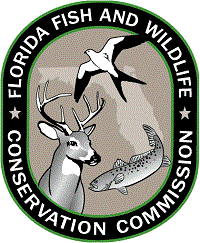Florida WC Proposes New Deer Hunting Regulations for Northwest Florida

The Florida Fish and Wildlife Conservation Commission (FWC), at its meeting in Weston today, approved a draft proposal that would divide the state’s Hunting Zone D (from Pensacola to Tallahassee) into two deer management units (DMUs), each with its own unique set of deer antler-point regulations and antlerless deer harvest days.
These proposals for Zone D, which if passed at the April 2014 Commission meeting, would take effect during the 2014-15 hunting season and are part of a larger, statewide project aimed at managing deer on a more local level and providing stakeholders with a greater say in deer management. The Commission also directed staff to provide an update on this issue at the February Commission meeting.
The FWC conducted a public outreach and input process in northwest Florida during the first three months of 2013. During that period, the Commission received input and comments from hunters, farmers and the general public regarding how they would like to see deer managed in the newly proposed DMUs.
As a result of this outreach process, the FWC is considering rule proposals for both public and private lands in both of the DMUs in Zone D, specifically north and south of Interstate 10. Currently statewide on private lands and most wildlife management areas, bucks that are legal to take must have at least one antler that is at least 5 inches long.
The proposals would require that bucks harvested north of I-10 in Hunting Zone D have antlers with at least three points (each point having to be at least 1 inch long) on one side. South of I-10 in Zone D, the minimum antler requirement would be two points on one side.
The proposal includes an exception to the antler requirements in both DMUs whereby youth 15 years old and younger may continue to harvest bucks with at least one antler that is 5 inches or more in length.
Also, the FWC is proposing a change to the antlerless deer season (“doe days”) on private lands within Zone D. Currently in that zone, the season to take deer of either sex (except spotted fawns) runs for seven consecutive days: Dec. 26 – Jan. 1. In the proposed rules, those dates north of I-10 would change to eight days distributed across four weekends (Saturday-Sunday after Thanksgiving, first weekend of muzzleloading gun season, third weekend of general gun season and the weekend after Christmas).
South of I-10, in Zone D, the proposal would change the antlerless season to four days consisting of two popular holiday weekends (the weekends after Thanksgiving and Christmas).
The purpose of modifying the antlerless deer season is to spread out the hunting opportunity, so that more hunters may be able to participate without substantially reducing deer populations. These changes would be monitored to measure the impact on the deer harvest and hunter satisfaction within each DMU.
For more information on these two proposed DMUs and their respective modifications to deer hunting regulations, go to MyFWC.com/Deer.

